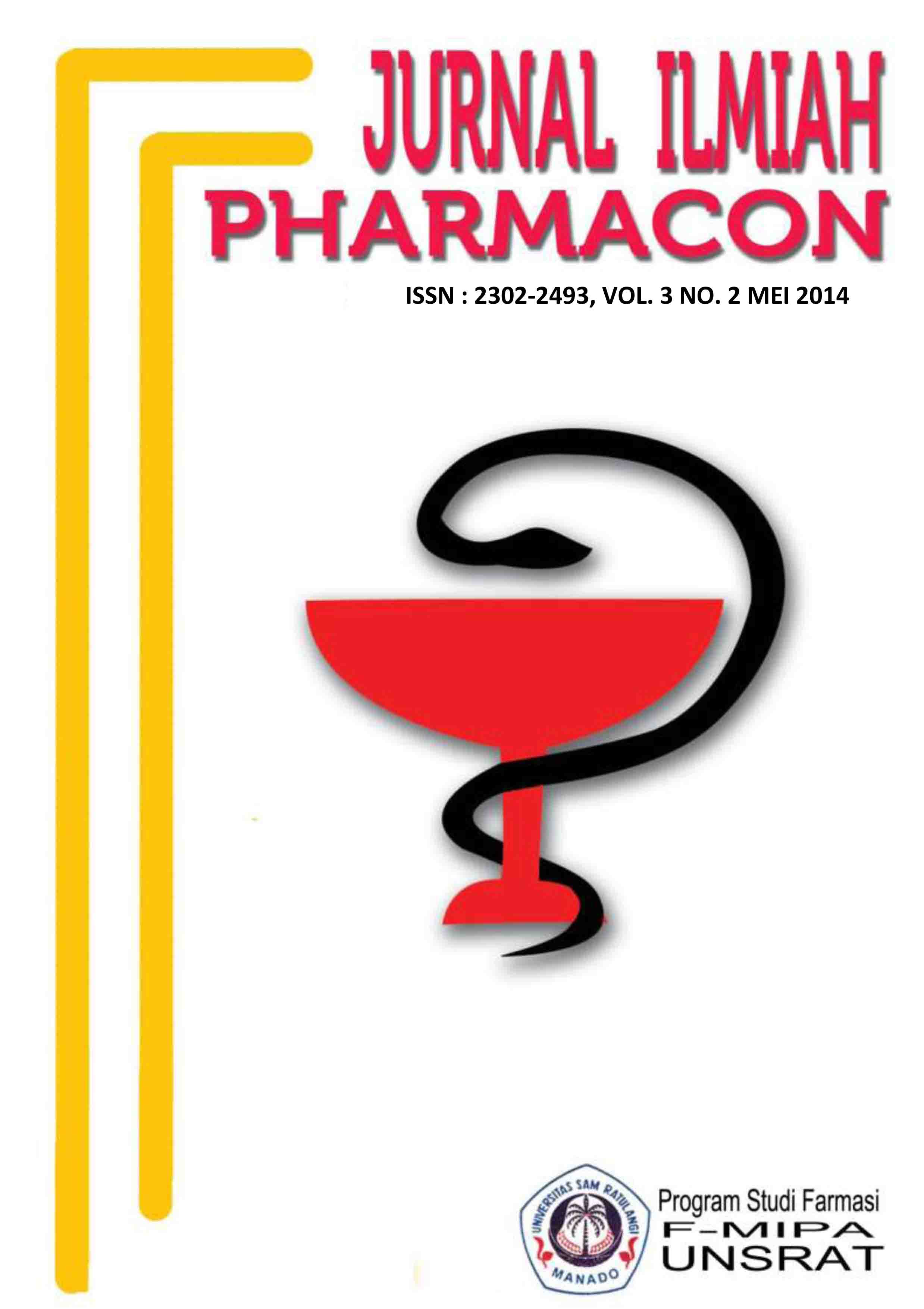UJI EFEKTIVITAS EKSTRAK ETANOL KULIT BUAH LABU SIAM (Sechium edule (Jacq.) Swartz ) SEBAGAI DIURETIK PADA TIKUS JANTAN GALUR WISTAR (Rattus novergicus)
DOI:
https://doi.org/10.35799/pha.3.2014.4773Abstract
The study aimed at finding out the effectiveness of chayote (Sechium edule (Jacq.) Swartz) rind ethanol extract as diuretic and the relationship of the increases dose of chayote rind ethanol extract. Completely randomized design method was used in this experiment. The subject of the experiment were fifteen white male rats strain Wistar (Rattus novergicus) were divided into five groups of treatment, namely negative control group (CMC 0,5% suspension), positive control group (furosemide suspension), the dose 0,033 g/kg bw of chayote rind ethanol extract group, the dose 0,066 g/kg bw of chayote rind ethanol extract group, and the dose 0,132 g/kg bw of chayote rind ethanol extract group. The test of diuretic effect were conducted by calculate volume of excreted urine during 6 hours treatment. The results show, diuretic activity increases on the giving of chayote rind ethanol extract. Data were analyzed using spss ver.16. the differences between treatments were analyzed using one way ANOVA. The dose of chayote rind ethanol extract 0,033 g/kg bw was the most optimum diuretic activity. The increasing dose of chayote rind ethanol extract did not show a better result.
Â
Key words : Sechium edule (Jacq.) Swartz, diuretic effectiveness, Rattus novergicus
Downloads
How to Cite
Issue
Section
License
Authors who publish with this journal agree to the following terms:
- Authors retain copyright and grant the journal right of first publication with the work simultaneously licensed under a Creative Commons Attribution-NonCommercial 4.0 International License that allows others to share the work with an acknowledgement of the work's authorship and initial publication in this journal.
- Authors are permitted and encouraged to post their work online (e.g., in institutional repositories or on their website) prior to and during the submission process, as it can lead to productive exchanges, as well as earlier and greater citation of published work (See The Effect of Open Access)










